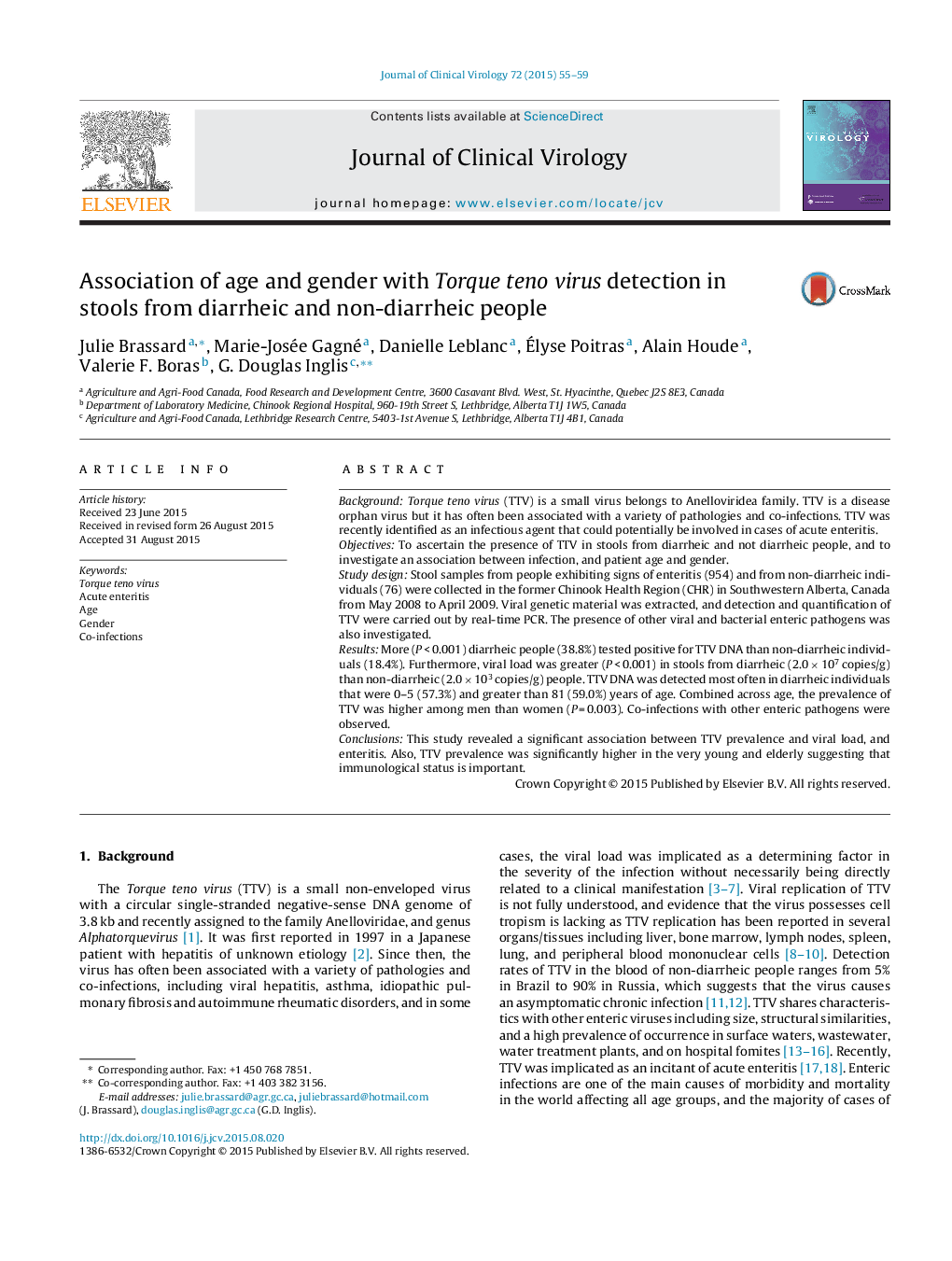| Article ID | Journal | Published Year | Pages | File Type |
|---|---|---|---|---|
| 3368770 | Journal of Clinical Virology | 2015 | 5 Pages |
•Significant association between TTV prevalence and viral load, and enteritis was found.•TTV prevalence was significantly higher in the very young and the elderly.•TTV was significantly higher among men than among women.•Co-infections between TTV and enteric pathogens were observed in diarrheic individuals.
BackgroundTorque teno virus (TTV) is a small virus belongs to Anelloviridea family. TTV is a disease orphan virus but it has often been associated with a variety of pathologies and co-infections. TTV was recently identified as an infectious agent that could potentially be involved in cases of acute enteritis.ObjectivesTo ascertain the presence of TTV in stools from diarrheic and not diarrheic people, and to investigate an association between infection, and patient age and gender.Study designStool samples from people exhibiting signs of enteritis (954) and from non-diarrheic individuals (76) were collected in the former Chinook Health Region (CHR) in Southwestern Alberta, Canada from May 2008 to April 2009. Viral genetic material was extracted, and detection and quantification of TTV were carried out by real-time PCR. The presence of other viral and bacterial enteric pathogens was also investigated.ResultsMore (P < 0.001) diarrheic people (38.8%) tested positive for TTV DNA than non-diarrheic individuals (18.4%). Furthermore, viral load was greater (P < 0.001) in stools from diarrheic (2.0 × 107 copies/g) than non-diarrheic (2.0 × 103 copies/g) people. TTV DNA was detected most often in diarrheic individuals that were 0–5 (57.3%) and greater than 81 (59.0%) years of age. Combined across age, the prevalence of TTV was higher among men than women (P = 0.003). Co-infections with other enteric pathogens were observed.ConclusionsThis study revealed a significant association between TTV prevalence and viral load, and enteritis. Also, TTV prevalence was significantly higher in the very young and elderly suggesting that immunological status is important.
